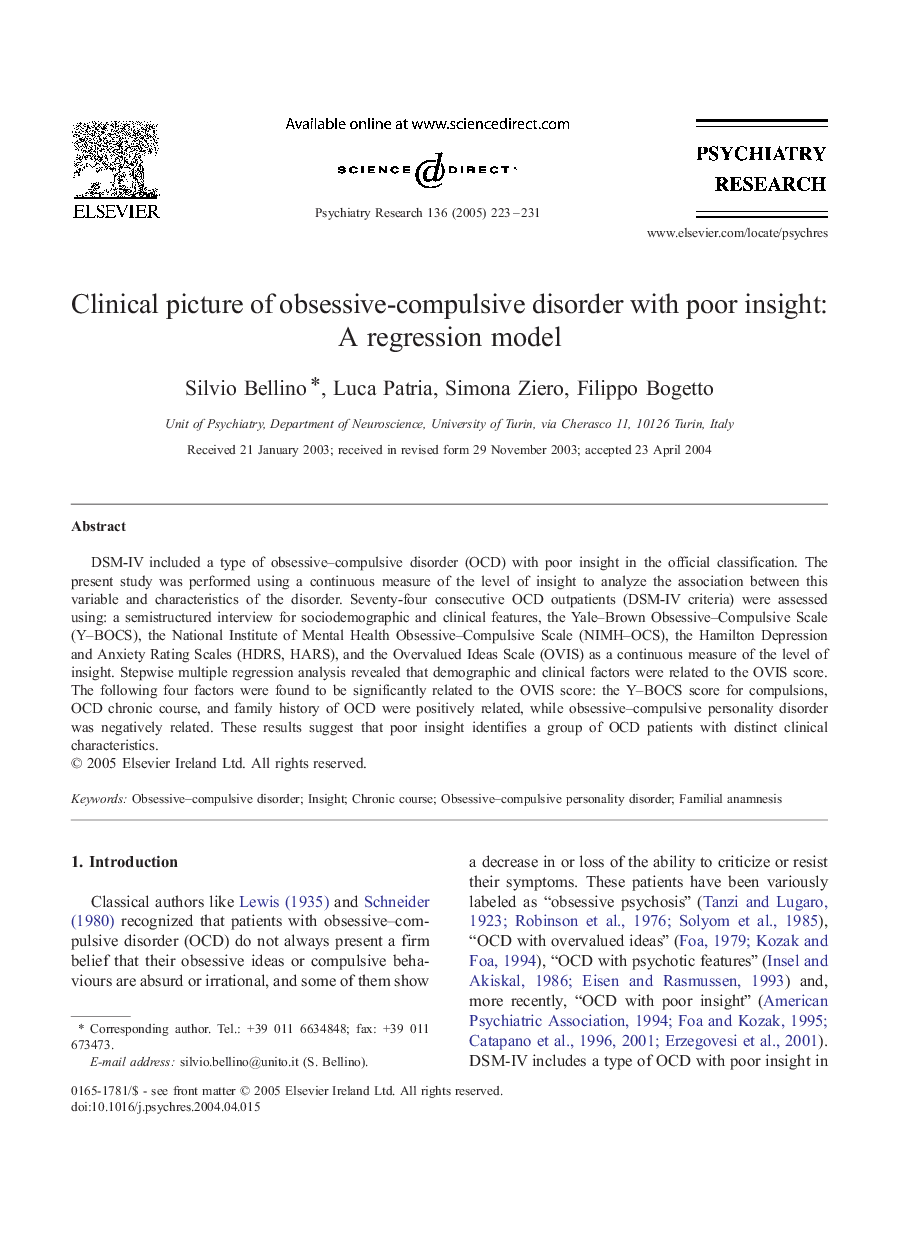| Article ID | Journal | Published Year | Pages | File Type |
|---|---|---|---|---|
| 9645982 | Psychiatry Research | 2005 | 9 Pages |
Abstract
DSM-IV included a type of obsessive-compulsive disorder (OCD) with poor insight in the official classification. The present study was performed using a continuous measure of the level of insight to analyze the association between this variable and characteristics of the disorder. Seventy-four consecutive OCD outpatients (DSM-IV criteria) were assessed using: a semistructured interview for sociodemographic and clinical features, the Yale-Brown Obsessive-Compulsive Scale (Y-BOCS), the National Institute of Mental Health Obsessive-Compulsive Scale (NIMH-OCS), the Hamilton Depression and Anxiety Rating Scales (HDRS, HARS), and the Overvalued Ideas Scale (OVIS) as a continuous measure of the level of insight. Stepwise multiple regression analysis revealed that demographic and clinical factors were related to the OVIS score. The following four factors were found to be significantly related to the OVIS score: the Y-BOCS score for compulsions, OCD chronic course, and family history of OCD were positively related, while obsessive-compulsive personality disorder was negatively related. These results suggest that poor insight identifies a group of OCD patients with distinct clinical characteristics.
Related Topics
Life Sciences
Neuroscience
Biological Psychiatry
Authors
Silvio Bellino, Luca Patria, Simona Ziero, Filippo Bogetto,
